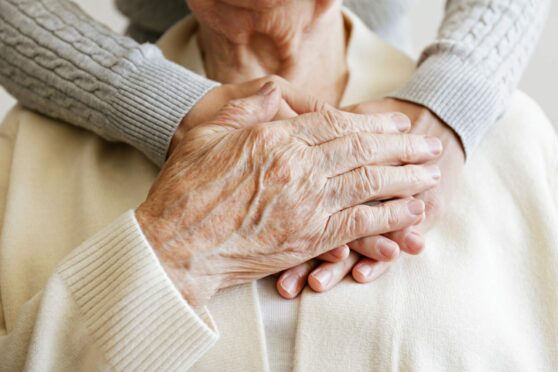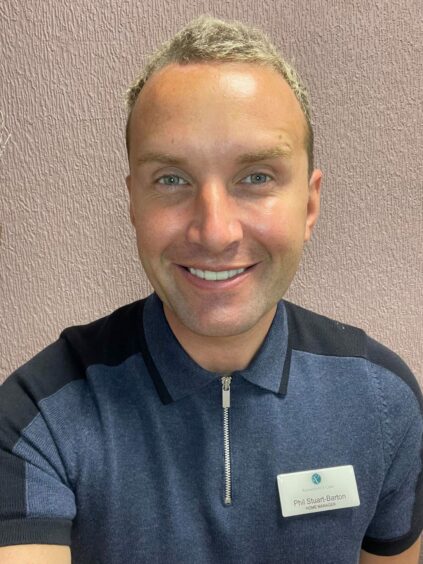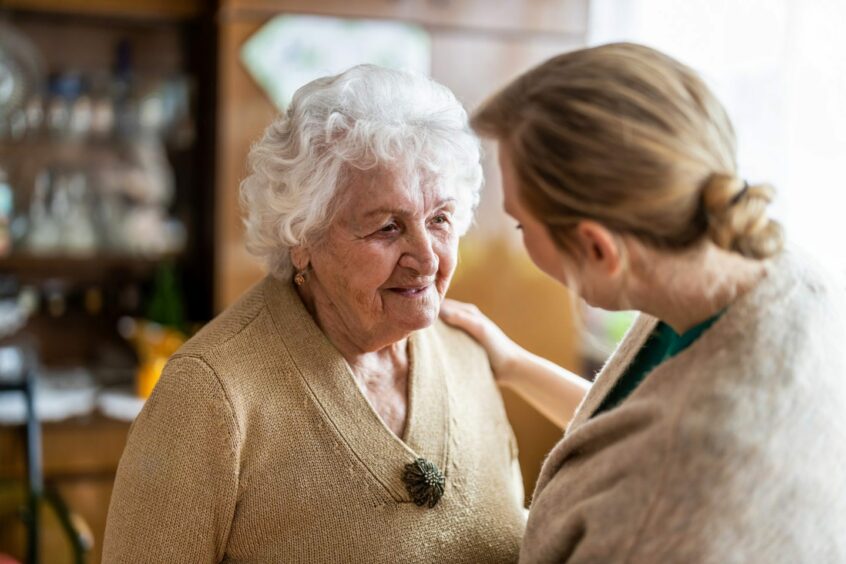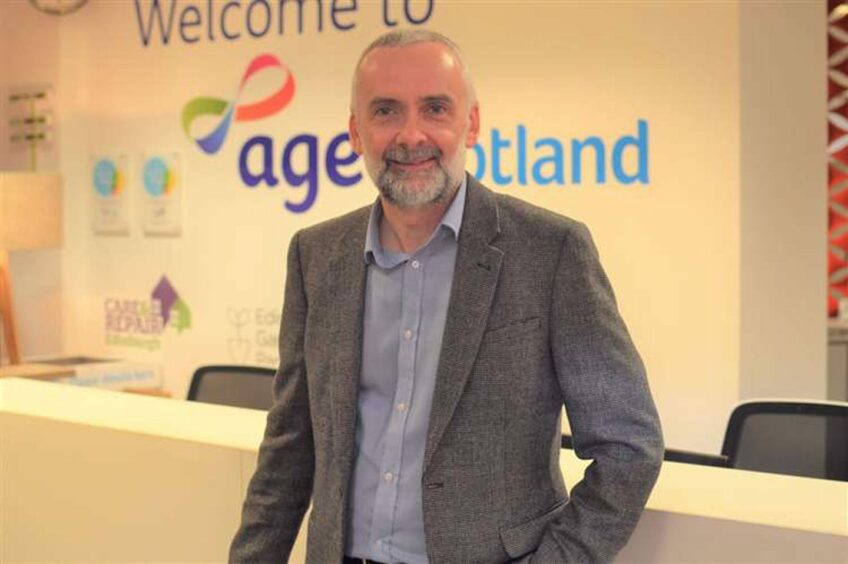I was 25 years old when I advocated for my dad, and I still think about the experience today.
All that fierce and steadfast love which had carried me along through childhood, I tried to reciprocate in a brief meeting.
As the anniversary approaches of losing him, I try to take comfort in the fact that I was a daughter, arguing the case for a beloved dad.
Every day, thousands of people take on the weight of caring for an elderly parent.
Navigating personal care, dignity, mental health, finances, guilt and grief in one swoop.
The intricate workings of social services, support workers, physio and meals on wheels.
It is only when care goes wrong, that we quite righty express outrage.
But what if we were talking about this chapter of life in the first place?
We fear growing older, frailer, more dependent and making decisions about care homes.
But with an ageing population, isn’t it time we discussed what it means to care for someone, and where help can be found?
I’ve spoken with Aberdeen care home manager, Phil Stuart, alongside chief executive of Age Scotland, Mark O’Donnell, to find out more.
Phil Stuart: “Everybody deserves to feel loved.”
“I have been the manager at Cowdray Club Care Home for three years now, I started on the day we went into lockdown.
“It has been a journey to say the least, but it felt like coming home.
“I think I got my loving of working with elderly people, during a placement as a student nurse.
“I was placed on the care for the elderly ward at Royal Cornhill Hospital, and I felt so lucky when it became my second to last placement again.
“We see people from all walks of life at The Cowdray Club, and my message to my staff is the same.
When you are caring for someone, imagine the person you love most in the world is one of our residents.
“Nobody wants to be in a care home because there is a stigma attached, and I think that’s partly because you only ever hear about the negative.
“We’re not quite as quick to celebrate the good, but we’re now starting to approach care the way it’s done in America.
‘The reality is we are an ageing population’
“Everybody is a person, and everybody deserves to feel loved.
“You’re not giving up, either by coming into a care home yourself or making that decision as a relative.
“We’re now a generation that want to look the best we can, but the reality is that we are an ageing population.
“We are living longer and potentially requiring more medical support.
“When families make their decision about a care home for their loved one, there can be guilt which accompanies that feeling of relief.
“I also see acceptance though, when people can no longer continue unsupported.
“People are now educating themselves a lot more, because fear and stigma can be linked to the unknown.
“Relatives are now doing their research, and that can only be a good thing.
“They’re finding out about the highs and lows of dementia for example, the different types and what to expect.
“We deal with all manner of things, from mental health to residents who have full capacity.
“When people put their trust in me, that means the world.
Trust has to be earnt, and we work very hard to establish it over time. “
“I see myself not just as a care home manager, but as a nurse who works hard.
“It can be me delivering the personal care for a resident, along with the rest of the team.
“It’s about the quality of care and the detail.
“That’s what we need to be achieving, and that’s what we need to be talking about.”
Mark O’Donnell: “We need frank and open discussion.”
“Many people provide help and support to someone else, but don’t see themselves as carers; they just feel they are doing what anyone would do to support friends or family.
“In fact, there are an estimated 1.1 million unpaid carers in Scotland.
“Caring for someone can be rewarding, but it can also be exhausting and frustrating and, unfortunately, all too often unpaid carers miss out on what they are entitled to or feel they must fight for their rights.
“With a growing older population, it’s likely that an increasing number of people will find themselves taking on caring responsibilities in the coming years.
“While the conversation around caring has been growing gradually, it’s clear much more needs to be done to continue this progress and provide further support for carers, both in terms of finances and for their health and wellbeing.
“Only by encouraging frank and open discussion on caring will people feel equipped and empowered to better access their rights and seek support with current or future caring roles.
“Age Scotland is committed to raising awareness of carers’ rights so that all unpaid carers in Scotland can access all of the support and benefits they need.
“We offer a range of free resources such as training courses and workshops, information guides, and access to friendly helpline advisors to assist carers better understand and realise their rights.”
Getting help
You can find out more at www.age.scot/carersrights or through the charity’s helpline, via 0800 12 44 222.




